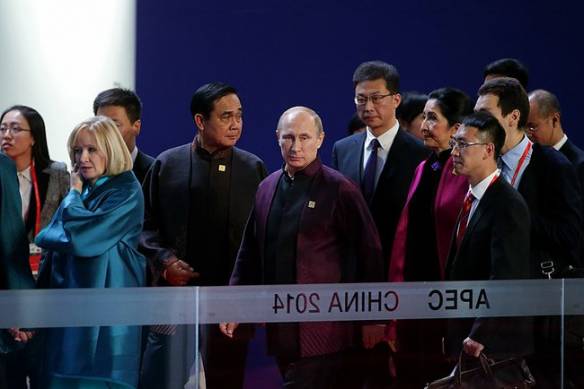
An odd man out in the APEC crowd
In a case of striking symbolism, President Vladimir Putin traveled to Beijing on the 25th anniversary of the fall of the Berlin Wall, as if seeking reassurance against the specter of a mass public uprising. The dismantling of that icon of the Cold War signified a breakthrough in finally achieving a Europe united by the vision of freedom and democracy. But for Putin, as his past remarks suggest, it was a painfully traumatic experience that left him forever in fear of a sudden explosion of popular discontent (Gazeta.ru, November 4). The Chinese leadership shares his deep hostility to revolutions and tends to see the recent protests in Hong Kong as a manifestation of malignant Western conspiracy—much the same way that Putin saw the EuroMaidan protests in Kyiv as a coup orchestrated by the West (Moscow Echo, October 20). That said, Putin’s agenda for his meeting with President Xi Jinping and for what he hoped to accomplish at the Asia-Pacific Economic Cooperation (APEC) summit was neither convincing nor relevant.
Read more in Eurasia Daily Monitor, November 10